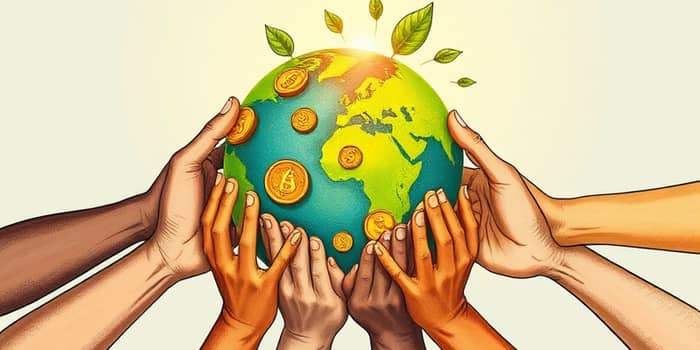
In a world grappling with social inequities and environmental decline, the choices we make with our money can be a powerful force for good. Redirecting funds toward sustainable initiatives allows individuals and businesses alike to foster positive change and promote long-term resilience. Ethical banking emerges as a holistic approach to finance, one that rejects harmful investments and prioritizes transparent, community-oriented practices.
Ethical banking is grounded in the idea that financial institutions bear a responsibility beyond mere profit generation. These banks commit to open disclosure of investment decisions and enforce strict exclusion of harmful industries, such as fossil fuels, weapons manufacturers, and exploitative labor practices.
By funding renewable energy projects, social enterprises, and local community initiatives, ethical banks ensure that depositors’ money serves broader societal and environmental goals. Unlike traditional banks, they often publish detailed impact reports, enabling customers to trace exactly where their savings and investments are deployed.
Consumer consciousness around climate change and social justice has fueled rapid expansion in the ethical banking sector. The global ethical banking market is projected to grow from $70 billion in 2025 to $150 billion by 2032, registering a compound annual growth rate of 10.1%. In contrast, the overall banking and finance market is expected to grow at just 6% CAGR during the same period.
Asia-Pacific currently leads in consumption, with North America following as the fastest-growing region. This surge is driven by widespread adoption of ESG frameworks and the heightened demand from younger demographics seeking alignment between values and financial services.
Ethical banking has diversified to serve various audiences and needs. Key models include:
At the heart of ethical banking lie four fundamental principles:
Many institutions seek third-party certifications—such as B Corp status, Fossil-Free accreditation, or membership in the Global Alliance for Banking on Values—to validate their commitments. They also aim for a high percentage of lending, often 75% or more, dedicated to positive-impact projects.
Several powerful forces are propelling ethical banking toward the mainstream. First, younger generations demanding purposeful finance have shifted market dynamics, prioritizing equity, diversity, and inclusion.
Regulatory pressures and enhanced ESG reporting standards have further incentivized institutions to adopt responsible practices. Meanwhile, fintech innovations—such as blockchain for immutable impact tracking and AI-driven sustainability scoring—provide the tools necessary for real-time transparency and accountability.
Despite its rapid growth, ethical banking faces hurdles that could impede its progress. Regulatory inconsistencies across jurisdictions make it difficult to standardize impact measurements. This fragmentation can lead to loopholes and, at worst, greenwashing—where banks exaggerate or misrepresent their environmental credentials.
Implementing and maintaining sustainable infrastructure also carries higher upfront costs, which can pressure profitability. Moreover, measuring true social and environmental outcomes remains complex, requiring sophisticated data collection and verification methods.
Individuals can take concrete steps to ensure their funds foster positive change:
By shifting even a portion of savings or investments to ethical institutions, consumers send a powerful market signal, encouraging traditional banks to raise their standards.
The outlook for ethical banking is optimistic. Continued market expansion, driven by consumer demand, regulatory evolution, and technological advancements, promises deeper integration of sustainability into mainstream finance.
Blockchain-based verification systems and international standardization efforts may soon provide universally recognized benchmarks, reducing greenwashing risks and simplifying customer choices. As more investors and depositors prioritize purpose over profit alone, the entire financial ecosystem stands to become more transparent, inclusive, and resilient.
Ethical banking represents a paradigm shift: one in which finance becomes a tool for global stewardship rather than mere accumulation of capital. By placing community and planet at the center of financial decisions, we chart a path toward a more equitable and sustainable future—one deposit at a time.
References













